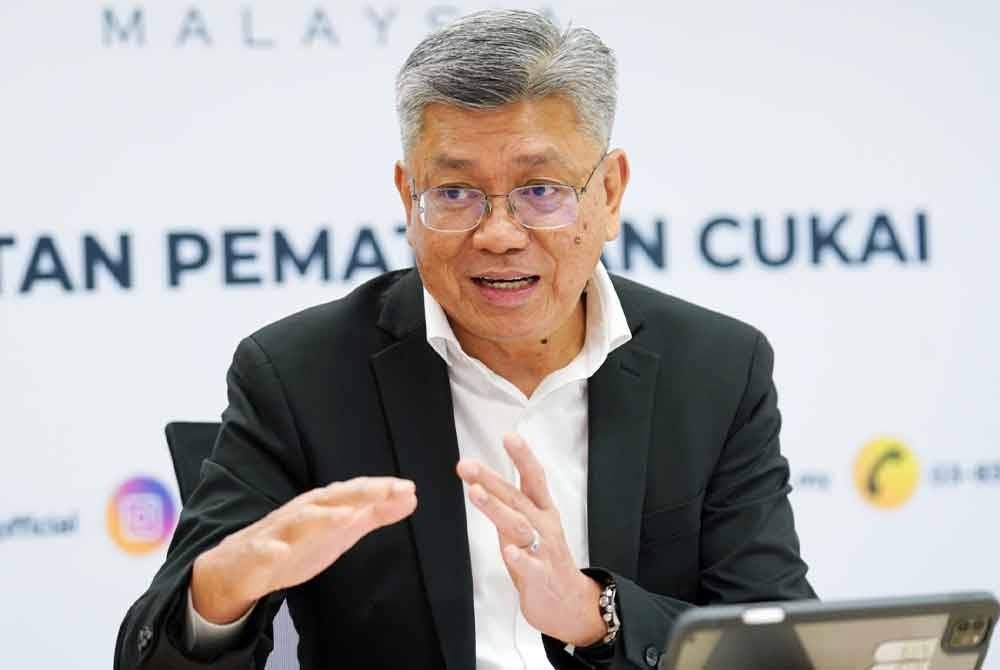Showing off wealth on social media? IRB is watching influencers who evade taxes



SHAH ALAM - The Inland Revenue Board (IRB) has identified influencers as well as individuals who enjoy flaunting cash and luxury on social media to ensure they do not run away from paying taxes.
IRB Tax Compliance Department director Abang Ehsan Abang Abu Bakar said monitoring was done daily through all social media and e-commerce platforms.
He said the IRB through its specialised unit, the Digital Economy Audit Section (SAED) has a special role in monitoring the activities of influencers and digital entrepreneurs who live in luxury but did not pay taxes.
"Some of us noticed that these people like to show off their luxurious life like money and so on.
"Even if it is not an offence, but monitoring is indeed carried out to ensure that they fulfill their responsibility to pay taxes," he told Sinar in a special interview at the IRB Headquarters in Cyberjaya, recently.
Abang Ehsan said that the board always carried out compliance activities based on the concept of Awareness, Education and Services (AES).
He said the compliance activities carried out were based on the appropriate level of risk assessment based on various sources including public complaints.
"Influencers selected for the compliance review must submit evidence related to their business activities to the IRB during the compliance review," he said.
He said the task was carried out by SAED in the social media comment section belonging to influencers and digital entrepreneurs who had been identified.
He said the action aimed to influence the behaviour of social media influencers in making decisions to comply with taxation laws.
"It can give direct awareness to taxpayers in line with the AES approach," he said.
He added that the IRB also faced challenges to implement the monitoring method through social media.
"The ever-increasing development of influencer activities on social media platforms and rapid changes in online business models from time to time are among the challenges in monitoring the activities of social media influencers.
"All forms of allegations and information that are factual or uncertain are always under the supervision of the IRB," he said.
He said compliance activities could be carried out for anyone who was at risk of tax non-compliance.
"The AES approach is now a key element in the work culture of the IRB in ensuring that taxpayers fulfill their responsibilities," he said.
The IRB also conducted compliance activities based on appropriate risk assessment levels based on various sources.
"In addition, IRB held an engagement session with influencers which was carried out in a relaxed manner thus being able to spread the message of taxation widely to social media influencers and then to their followers on social media," he said.
- No interference to the source of income -
Abang Ehsan said checks were always carried out to ensure that the income and taxes that should be reported, calculated and paid were in accordance with taxation laws and regulations.
"By right, the people who have to pay tax should not worry or be afraid of what the IRB is doing.
"The issue of taxes is a responsibility to the country, if we have enough conditions to put ourselves in need of paying taxes then it needs to be implemented for the sake of the country.
"There is no element that shows that IRB interferes with the source of income or the like," he said.
He said the verification of information regarding the taxpayer's financial resources was carried out during the compliance review process.
Abang Ehsan said taxpayers needed to keep sufficient and complete records so that the income or loss from the business activity in question could be determined.
"The IRB will ensure that all information obtained from taxpayers whether through interviews, discussions, correspondence or review of records and documents is confidential and only used for income tax purposes," he said.
Abang Ehsan said the IRB was implementing an approach to provide education and exposure to taxpayers.
"The IRB is not careless in carrying out the trust they are responsible for and what we want is for the taxpayers to know and be aware of their responsibilities.
"Indirectly this matter is an obligation for taxpayers according to the provisions of the Income Tax Act 1967," he said.
-Implementation of Special Voluntary Declaration Programme 2.0-
Abang Ehsan said that the implementation of the Special Voluntary Declaration Programme 2.0 (PKPS 2.0) was an initiative provided for those who have not paid their taxes.
He said the programme was not only for influential people but was open to all Malaysians.
“Among the privileges offered through this programme is offering a penalty at an zero per cent rate and confessions are accepted in good faith," he said.
He explained that apart from that, the implementation of the Self-Assessment System (STS) was a programme held to increase voluntary tax compliance.
“Any individual can be selected for compliance review at any time.
"However, if a taxpayer has been selected for a compliance review, this does not mean that the individual has committed an offence," he said.
Abang Ehsan said that income received and not reported by social media influencers or any individual could result in tax leakage and loss of national income.
"Taxes are one of the country's important resources for the benefit of all groups in this country.
"If this matter is taken lightly, it will affect the development and prosperity of the country," he said.
He added that IRB always carried out their duty in a fair, transparent and equitable manner.
"Efficiency in implementing tax collection can improve the public's trust in the taxation system in force.
"Compliance with taxation laws is always strictly enforced by the IRB and taxation offences such as non-compliance and tax evasion must be acted upon in accordance with the provisions of the Income Tax Act 1967," he said.
- Influencers surprised online business taxed -
Meanwhile, a social media influencer expressed regret after ignoring income tax payments.
The individual, who only wanted to be known as Zaidi revealed that he did not pay income tax amounting to more than RM40,000 through the income earned from online sales on social media.
Zaidi said that he initially thought the tax was only applied to those with a fixed income.
"I earn quite a lot, but the rate varies according to sales, sometimes more and sometimes less.
"I thought what I received was not taxed and at the same time I did not know much about this taxation," he said.
Zaidi added he then received a letter from the IRB that asked to come to the agency's office.
"I thought it was just a normal meeting, but when I arrived at the IRB office, I was shown dozens of files displaying my sales on social media.
"Apparently all my activities on social media were monitored, I was also questioned about the income I received," he said, adding that he was also given information related to taxation and offences committed.
"At that time I realised that my actions of taking the issue of income tax for granted was self-inflicted after the IRB's investigation found that I had not paid tax amounting to RM40,000, a large amount and I had to settle it within a month," he said.
Zaidi said he regretted that due to his ignorance, he had to go through various difficulties.
"I realise that everything happened because of my own fault, but I want to thank the IRB officials who tried to make things easier for me," he said.










